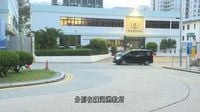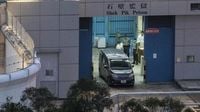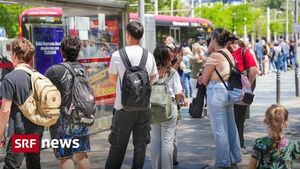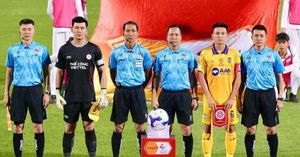Four prominent pro-democracy figures in Hong Kong were released from prison on April 29, 2025, after serving sentences related to their involvement in a controversial political case. The individuals—Leung Kwok-hung, Tam Man-ho, Kwok Ka-ki, and Alvin Yeung—were convicted of conspiring to subvert state power as part of the pro-democracy primary election held in 2020.
All four men had been sentenced to four years and two months in prison, having been detained since 2021. Their release marks a significant moment in the ongoing political landscape of Hong Kong, which has seen a crackdown on pro-democracy activists and politicians following the implementation of the National Security Law.
According to reports, the release process began in the early hours of the morning, with several private vehicles arriving at the respective prisons to pick up the former lawmakers. At approximately 5:45 AM, two private cars left Stanley Prison, believed to be carrying Tam Man-ho and Kwok Ka-ki. Shortly thereafter, at 6 AM, four more vehicles departed, with the windows covered to shield the occupants from the media.
Alvin Yeung was released from Shek Pik Prison around 5:48 AM, while Leung Kwok-hung left Lo Wu Correctional Institution at 5:52 AM. Police had cordoned off the roads leading away from the prisons, ensuring a controlled exit for the released individuals. Media personnel gathered outside the facilities, eager for updates on the situation.
Leung Kwok-hung, who previously served as a Legislative Council member, was reported to have returned home and was not available for interviews. His husband stated, "She has returned home, is in a calm mood, and needs time to rest," emphasizing the need for privacy during this transitional period.
Tam Man-ho, another key figure in this case, expressed a desire to reunite with his family following his release. He has twin children who are now ten years old. During his time in prison, Tam became a Christian and excelled in his studies, completing courses in accounting and business administration.
Reflecting on his past, Tam stated during his sentencing hearing that he did not fully understand the implications of his actions at the time of the primary. He conveyed deep remorse for his previous statements and actions, apologizing to the central government and the people of Hong Kong. He emphasized that he never intended to be a radical politician but merely sought to contribute positively to society.
The case against the 47 pro-democracy figures stems from their involvement in a plan to veto the budget in the Legislative Council as a means to pressure the government into addressing five key demands from the pro-democracy movement. The crackdown on these activists has drawn widespread condemnation from international observers and human rights organizations.
In total, 45 of the 47 defendants were either convicted or pleaded guilty, receiving sentences ranging from four years and two months to ten years. The political climate in Hong Kong remains tense, with many activists continuing to face legal challenges and public scrutiny.
As the four men begin their reintegration into society, they carry with them the weight of their experiences in prison and the ongoing struggle for democracy in Hong Kong. The media presence outside the prisons reflects the public's interest in their stories and the broader implications of their release.
In the wake of their release, the political landscape in Hong Kong continues to evolve, with many observers questioning the future of pro-democracy efforts in the region. The actions of the government in response to the pro-democracy movement will likely shape the course of Hong Kong's political future.
While the release of these four figures may signal a moment of hope for some, it also serves as a reminder of the challenges that lie ahead for those advocating for democratic reforms in Hong Kong. The ongoing tensions between pro-democracy supporters and the government are expected to persist as the community grapples with the implications of the National Security Law and its enforcement.
As they step back into their lives, the four men will undoubtedly face the challenges of rebuilding their personal and political identities in a landscape that has changed dramatically during their incarceration. The road ahead may be fraught with difficulties, but their release represents a significant chapter in the ongoing narrative of Hong Kong's struggle for democracy.






